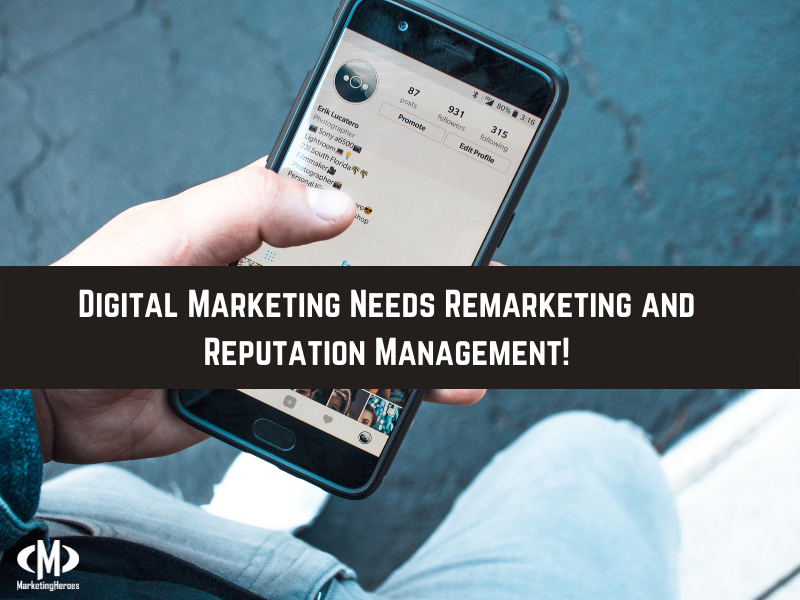The purpose of digital marketing is to help businesses develop their brands by increasing public awareness and drawing in new customers as a result.
While that may begin with things like advertising, social media use, and other promotional methods, marketing does not stop there.
Beyond creating new customers, marketing strategies must continue on to include remarketing, and also reputation management, two critical elements that can help any digital marketing campaign be more successful over time.
What Is Remarketing?
Remarketing is a digital marketing technique that targets users who have previously interacted with a website or business in some way, including clicking pages, viewing products, making purchases, and others.
The technique involves showing repeat ads and offers to those same users again to hopefully persuade them to convert.
How Does Remarketing Contribute To Digital Marketing?
The goal of effective digital marketing is to create customers or conversions by reaching as many people as possible as many times as it takes to convince them to make a purchase.
Some people will convert on the first contact; however, for those who do not, remarketing can be effective.
Marketing research has proven many times that people who do not convert immediately can frequently still be converted by advertising to them again in certain ways.
Reminders about products of interest, suggestions of related products, special deals, and other targeted remarketing ads will continue to convert customers, generating more sales.
What Is Reputation Management?
Online reputation management is the strategy of generating trust and a positive brand reputation through marketing and good service, monitoring what is being said about the brand, and then managing any negativity to protect that positive reputation.
It focuses on the proven theories that trust is gained and/or broken largely based on consumer feedback.
Why Is Reputation Management So Vital to Digital Marketing?
Reputation management is a critical, yet frequently forgotten detail that must be incorporated into a digital marketing strategy to keep marketing efforts effective.
Reputation is everything in business; a good reputation is associated with increased customer trust and increased sales, while a poor reputation is associated with low customer trust and lower sales.
For any marketing strategy to be cost-effective and successful, brands must practice reputation management to retain high levels of trust in the brand.
Managing brand reputation also provides an important opportunity for companies to understand shortcomings with the business and correct them to please customers more effectively, improve reputation, and sell more.
Every Digital Marketing Strategy Must Include These Two Things
Digital marketing for businesses is a lot more than just advertising.
While promotion is a large part of the process, there are behind-the-scenes tasks that contribute to successful marketing that must be practiced as well.
- Remarketing, the second step after standard advertising to keep users interested, is one.
- Reputation management, to build trust and protect a brand’s reputation, is another.
By implementing both of these elements as part of a total marketing strategy, businesses of all sizes will see more positive results from their promotions and increased sales and conversions with the same budget.





